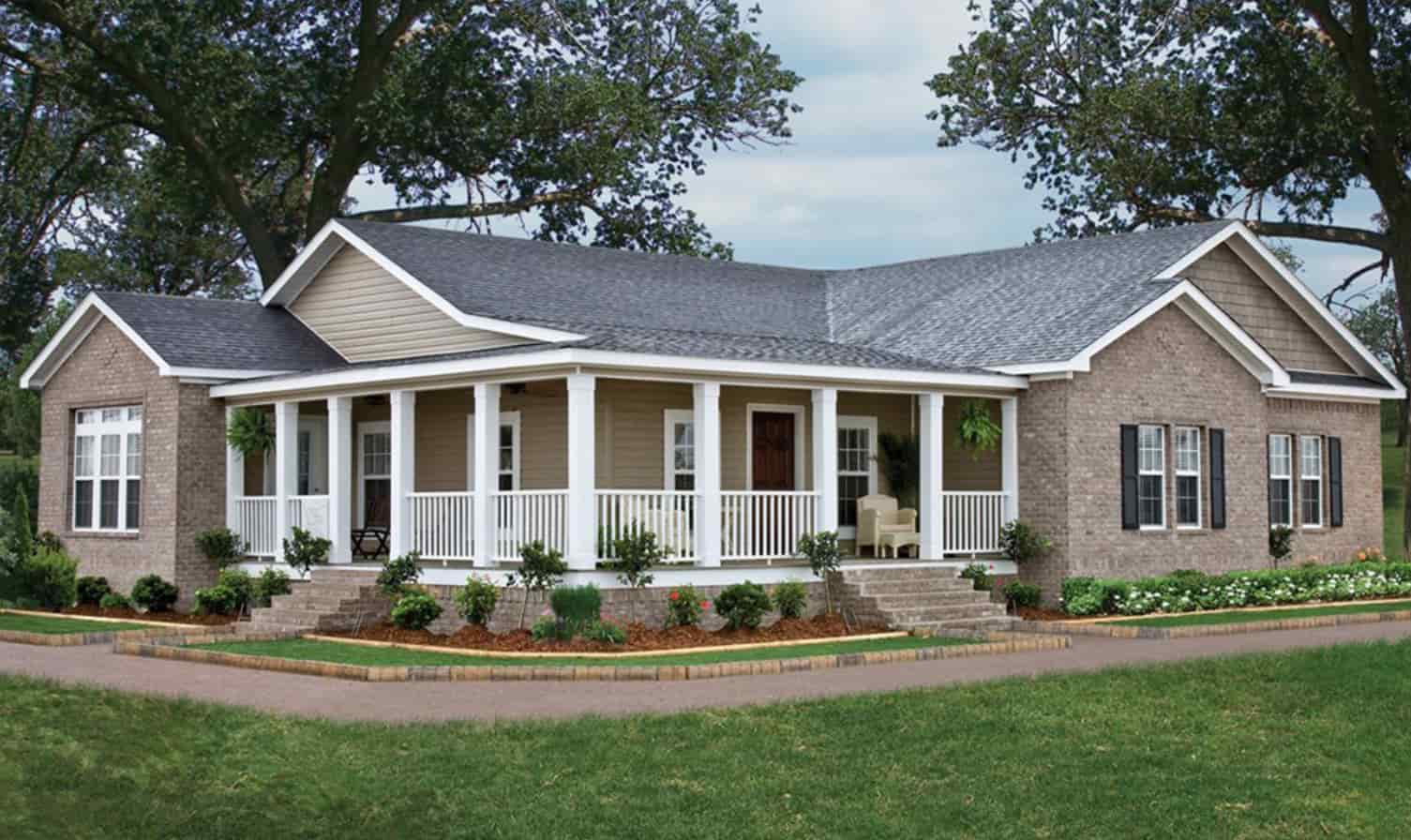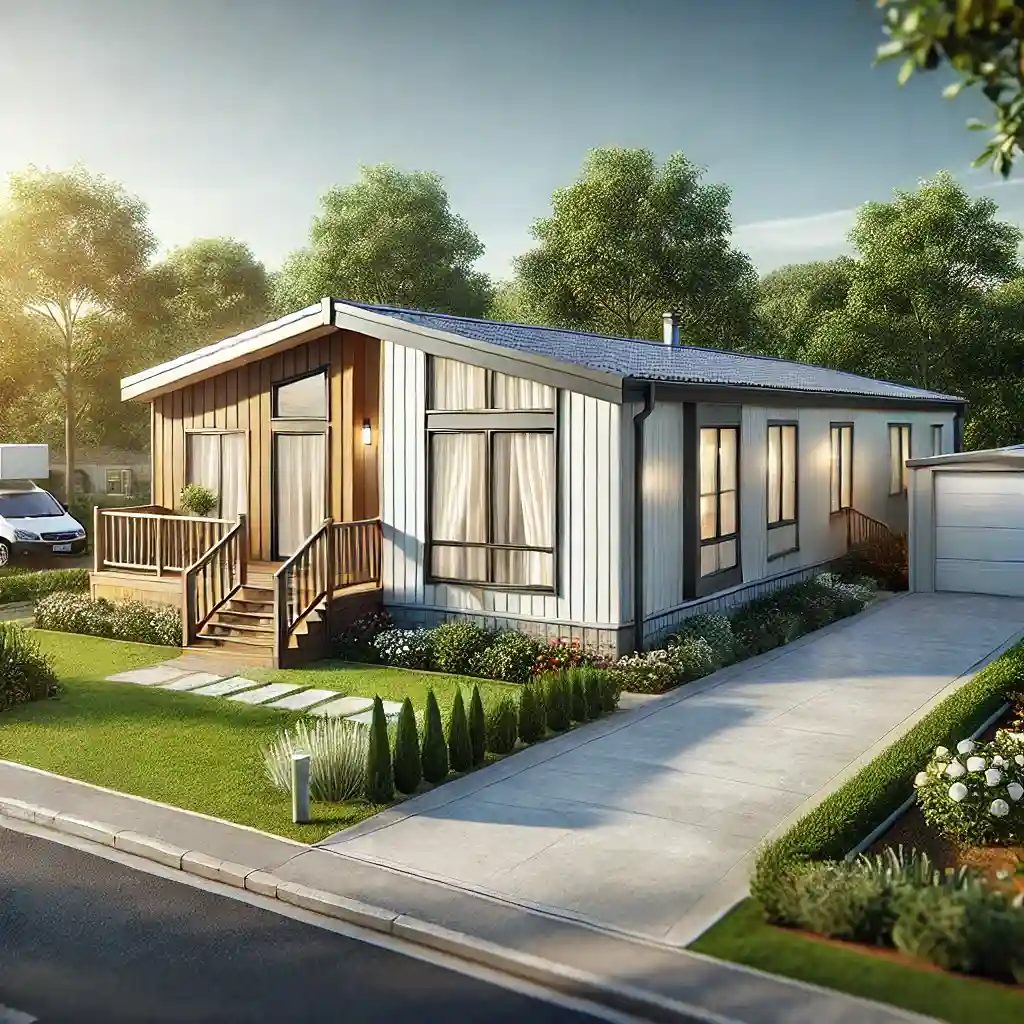Let’s be honest—for many people today, owning a home can seem like an unattainable goal. When housing prices keep on soaring, a traditional home might seem out of reach. But what if there was a way to own a home that’s affordable, modern, and energy-efficient? This is where manufactured homes come into the picture.
These homes come with big promises: cheaper, faster, more able to build them with some flexibility to move them if life moves you elsewhere. At first glance, it may seem like a perfect solution. Not so fast. Manufactured homes come with their share of trade-offs, and it’s important to know both sides before you jump in.
Now let’s break it all down and check if this possibility fits your needs.

Why Are Manufactured Homes So Affordable?
The Factory Advantage
One of the biggest selling points of manufactured homes is their price. Why are they so much cheaper than traditional homes? It’s all about efficiency. Manufactured homes are built in factories where materials are ordered in bulk, construction is streamlined, and weather delays don’t exist.
This factory process cuts down on waste and labor costs, which means savings are passed on to you.
Comparing the Costs
To put it into perspective, the average cost of a manufactured home is around $128,000. Compare that to a traditional single-family home, which can easily cost $400,000 or more. Even high-end manufactured homes with upgraded features rarely exceed $250,000.
For anyone on a tight budget, this is a game-changer.
The Catch: What’s the Deal With Land?
The Problem With Land Ownership
This is where challenges arise. Buying a manufactured home is just one part of the equation. You’ll also need a place to put it.
If you don’t already own land, you’ll need to factor in that additional cost. And it’s not just about buying land—you’ll also need to cover permits, utility hookups, and possibly a foundation. These extra steps can add up quickly.
Renting Land: Pros and Cons
Prefer not to buy land? You can rent a lot in a manufactured home community. This option is often cheaper upfront and simplifies the setup process. However, renting land means paying monthly fees, and you won’t build equity in the property beneath your home.
Plus, homes on rented land tend to depreciate over time, unlike traditional homes that often increase in value.
Mobility: A Hidden Perk of Manufactured Homes
Relocation Options and Considerations
One of the unique benefits of manufactured homes is that they’re designed to be movable. While it’s not as simple as hitching it to your car and driving off, it’s still possible to relocate your home to a new piece of land if needed.
This flexibility can be a big plus if you anticipate major life changes in the future.
When Mobility Matters
Moving a manufactured home isn’t cheap—it can cost thousands depending on the size of the home and the distance involved. But if you value flexibility or need a temporary housing solution, this feature might be a huge advantage.
The Financing Puzzle: Why It’s Not Always Simple
Challenges for Non-Permanent Foundations
Financing a manufactured home can be straightforward—or complicated, depending on your situation. If your home isn’t attached to a permanent foundation, it might not qualify for a traditional mortgage.
Instead, you’ll need to explore options like chattel loans, which function more like car loans and often come with higher interest rates.
Options for Permanent Foundations
If you’re able to install your home on a permanent foundation, you’ll have access to more financing options, including federal loan programs like FHA Title I or MH Advantage. These programs often require smaller down payments, making them more accessible for first-time buyers.
Energy Efficiency: A Bright Spot for Manufactured Homes
Built for Efficiency
One area where manufactured homes really shine is energy efficiency. Modern models are often designed with insulation, high-quality windows, and energy-saving appliances that rival—or even outperform—traditional homes. Many are Energy Star-certified, which means you’ll save on heating and cooling costs.
Affordable Upgrades
Because manufactured homes cost less upfront, you might have room in your budget for energy-efficient upgrades like solar panels or advanced HVAC systems. These additions can make a huge difference in your long-term utility bills.

Limited Choices: The Downside to Factory-Built Homes
Pre-Designed Limitations
While manufactured homes offer affordability, they don’t always offer endless customization. You’ll typically choose from a set of pre-designed layouts and features. If you’re someone who dreams of designing every detail of your home, this might feel limiting.
Zoning Restrictions
Another hurdle is local zoning laws. Some areas have strict rules about where manufactured homes can be placed, which might require buying more land than you planned or sticking to specific manufactured home communities. It’s worth checking your local regulations before making a decision.
| Category | Pros | Cons |
|---|---|---|
| Cost | – Significantly lower price than traditional housing. – Average cost around $128,000. – Savings due to factory-based production. |
– Additional costs for land, utility connections, and possible foundation construction. |
| Construction Speed | – Quick production in controlled factory settings. – No delays due to weather conditions. |
– Limited customization compared to traditional homes. |
| Mobility | – Can be moved when relocating. – Ideal for temporary or flexible living. |
– Moving can be expensive (several thousand dollars), especially for long distances. |
| Energy Efficiency | – Modern models equipped with energy-saving systems. – Option to install solar panels or other efficient solutions. |
– Some energy-efficient upgrades require additional investment. |
| Financing | – Traditional mortgages available for homes with permanent foundations. – Low initial down payment. |
– Homes without permanent foundations don’t qualify for traditional mortgages. – Higher interest rates on chattel loans. |
| Land | – Land can be rented, simplifying installation. | – Renting doesn’t provide land ownership. – Homes on rented land depreciate faster. – Zoning restrictions may limit placement. |
| Customization | – Various pre-designed layouts and finishes available. | – Limited design and layout options. – Must comply with local laws and zoning regulations. |
Should You Consider a Manufactured Home?
Key Takeaways
Manufactured homes are an affordable and energy-efficient housing option, making homeownership possible for many people. They’re especially appealing if you’re on a tight budget or looking for a quick, flexible solution.
However, they’re not without challenges. You’ll need to consider land costs, financing options, and potential zoning restrictions before making a decision.
Final Advice
So, would I recommend a manufactured home? If you’re someone who values affordability and doesn’t mind a few trade-offs, they’re definitely worth considering. Ensure thorough preparation by researching land options, exploring financing choices, and evaluating your long-term plans.
With the right approach, a manufactured home could be the perfect way to make your homeownership dream a reality.





